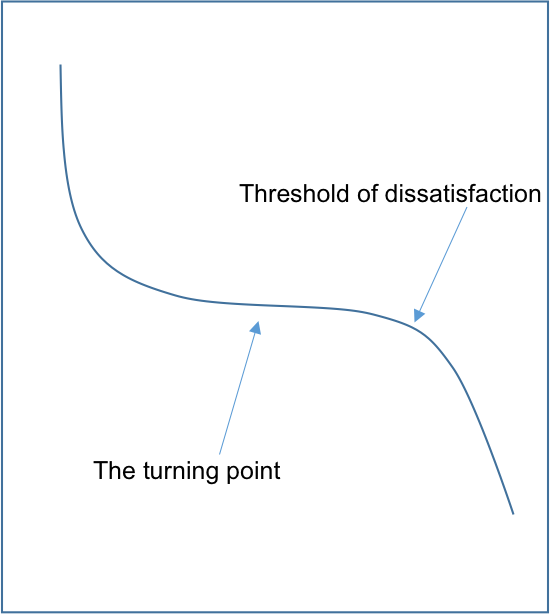IMPROVING CUSTOMER WAIT TIMES
NSI used non-linear regression and differential calculus working with senior leadership of a 2000+ FTE call center to adjust service levels and balance wait times with time spent meeting customer needs, resulting in strong satisfaction even with longer wait times.

Optimizing Customer Service Wait Times
A customer service organization was not meeting its goals in satisfaction with wait times, even though actual wait times had been driven progressively lower.
Applying discourse analysis of customer sentiment data and non-linear regression business analytics both showed that while actual wait time was important, the treatment customers received had a substantially larger impact on how they felt about the amount of time they actually waited than did the number of minutes they had to wait.
By deriving the relationship between all of these variables and overall wait time satisfaction, and using differential calculus, it was possible to predict satisfaction with wait times at different levels of actual service level, and different levels of quality of service.
The findings indicated that some service levels could be lengthened to allow for more time with each customer, while simultaneously increasing satisfaction and lowering cost.